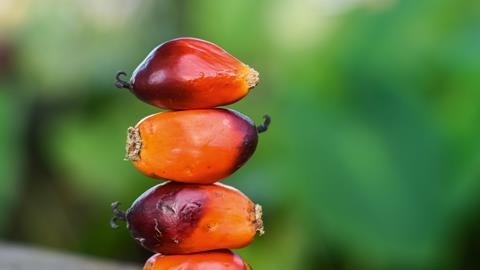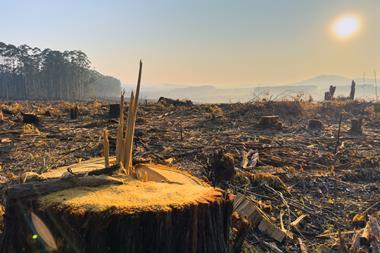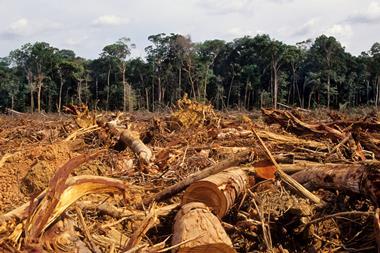Used in everyday items across virtually every fast-moving consumer good (fmcg) category, palm oil can be found in more than half of products on supermarket shelves. It offers multiple benefits over comparable vegetable oils and helps ensure products are available to shoppers with the frequency and quality they demand.
So why is it perceived negatively? Quite simply, it is misunderstood.
Making it sustainable
Shoppers will often cite concerns over the environmental and social impacts that palm oil has on the regions in which it is grown. While some concerns over any negative impacts of ingredient sourcing are valid, the perceived problems of palm oil are not best overcome by eradicating use altogether.
The solution is sustainable palm oil.
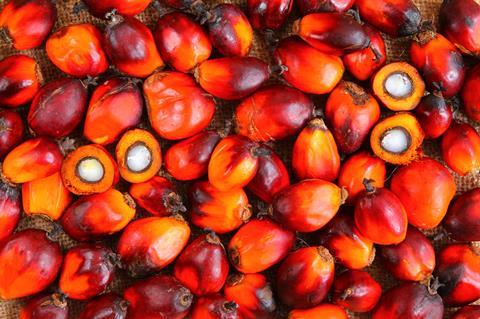
“The most sustainable alternative to palm oil is sustainable palm oil, but achieving a sustainable supply chain that respects biodiversity, natural ecosystems, deforestation, local communities, and workers in palm oil producing countries is a global challenge and a shared responsibility,” says Fay Richards, acting head of marketing and communications at the Roundtable on Sustainable Palm Oil (RSPO).
“For this reason, RSPO calls on all UK stakeholders to close the gap towards 100% certified sustainable palm oil.”
For palm oil to be considered sustainable – as is increasingly a key requirement of suppliers and retailers – it must meet strict criteria. This typically includes ensuring land is being preserved, crops are being grown responsibly, and effective programmes are supporting farmers and their communities.
Palm oil’s versatility, including being solid at room temperature and having higher stability to oxidation (which can give products a longer shelf life), makes it a crucial ingredient in thousands of products. Beyond that though, growing and harvesting palm oil is a more efficient option when compared to the alternatives. It requires a fraction of the land used by soya, for example, and produces four to 10 times more oil per hectare than any other vegetable oil crop1.
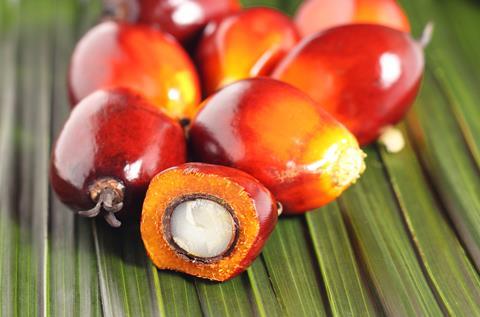
“Due to its high yield compared to other vegetable oil crops, banning palm oil is likely to be counterproductive – shifting the issue elsewhere, creating even greater habitat loss and negative impact on biodiversity,” says Simon Dowell, science director at Chester Zoo, a leading advocate of sustainable palm oil (see boxout).
“We strongly believe that part of the solution is embracing sustainable palm oil: raising awareness with individuals, communities and businesses and creating increased demand for sustainable.”
Educating consumers
Recent research from Kantar reveals the current situation and the challenges that need to be addressed by the industry1.
When asked about their perceptions of different vegetable oils, UK consumers believe palm oil to be the worst option when considering its negative impact on the environment, as well as its negative social impact on communities. These perceptions are predominantly influenced by content seen on TV, which is the main source of awareness of palm oil among consumers2.
Overall awareness of palm oil levels remains flat at 63%3, yet just a quarter of consumers have heard of it being sourced sustainably. But there are many benefits to using sustainably sourced palm oil.
Sustainability in action: Chester Zoo
A charity organisation leading the way on sustainable palm oil is Chester Zoo, which helped Chester to be named the world’s first ‘sustainable palm oil city’ in 2019.
The project saw the city become the flagship example of the kind of conservation impact that can be achieved when whole communities come together to make a change. Chester Zoo was at the heart of the campaign, leading the way by switching its entire food offering to only include products containing sustainable palm oil, as well as operating a holistic programme to educate visitors to the zoo and members of the local community.
Last year, Ferrero UK pledged to support Chester Zoo’s ongoing efforts in this space, with a shared aim of raising awareness of sustainable palm oil and encouraging more suppliers, towns and foodservice providers to make positive changes too.
That is not to suggest that palm oil’s use should not be considered with extremely high levels of care and attention. And many measures, programmes and charters in recent years have been introduced to improve standards across the industry and are providing greater support to the regions involved.
In January 2015, Ferrero became one of the first global companies to source 100% RSPO Certified Segregated sustainable palm oil. In 2016 the company achieved 100% traceability to plantations. This year it committed to 100% satellite monitoring of its palm oil supply chain through the Starling satellite monitoring and verification service.
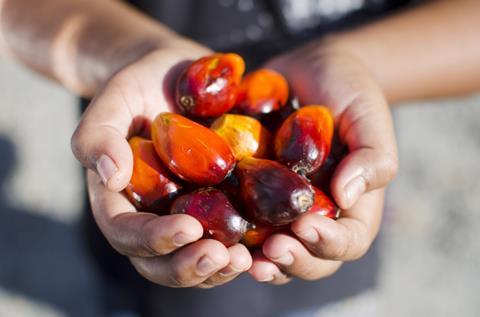
Through working in close collaboration with the RSPO and other bodies such as the Palm Oil Innovation Group (POIG), Ferrero is ranked as number one out of 173 global companies by the World Wide Fund for Nature (WWF) on its annual Palm Oil Buyer’s Scorecard.
Regularly going beyond the parameters set by industry programmes, Ferrero recently published its updated Palm Oil Charter to underline the commitment in playing a leading role the sustainable transformation of the palm oil sector to benefit the environment and people living and working in palm oil producing communities.
Sustainable future
With high standards for responsible sourcing being more widely adopted across the industry, it is important for suppliers, accreditation programmes and non-governmental organisations (NGOs) to come together to give consumers a more balanced understanding of palm oil.
”It is key we support consumers through education and transparency, showing that the ingredient can be sourced responsibly through consistent positive messaging about its benefits. This will give consumers the confidence they need to pick products that contain sustainable palm oil without confusion,” says Charlie Cayton, director of communications and corporate affairs at Ferrero.
“United, we can drive change through industry-wide collaboration. At Ferrero, we will continue to strengthen our palm oil sustainability programme to achieve a positive and lasting impact on the palm oil value chain, and will share our progress along the way, as we know this is important to our consumers.”
Sources:
1 Kantar: “Palm Oil: Awareness, Attitudes and Consumer behaviours. Report” 18.01.21
2 Kantar report: TV main source of awareness with 43% of respondents. Ahead of internet, 28%, and press, 27%
3 WWF: “8 Things to know about palm oil”, online article, January 2020. Oil yields in tonnes per hectare – Palm Oil: 3.3 | Soy: 0.4
Its versatility, including being solid at room temperature and higher stability to oxidation (which can give products a longer shelf life), makes it a crucial ingredient in thousands of products. Beyond that though, growing and harvesting palm oil is a more efficient option when compared to the alternatives. It requires a fraction of the land used by soya, for example, and produces four to 10 times more oil per hectare than any other vegetable oil crop.








